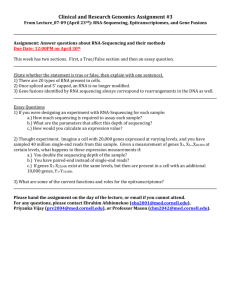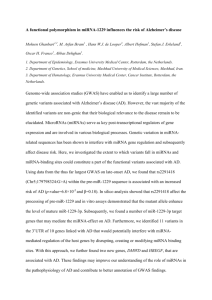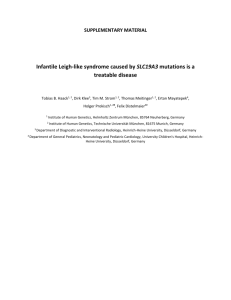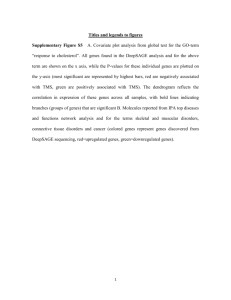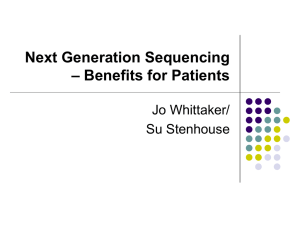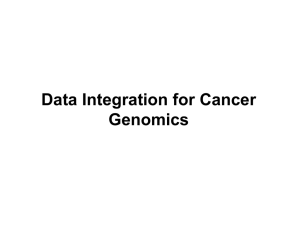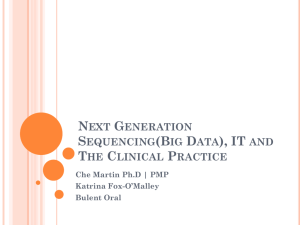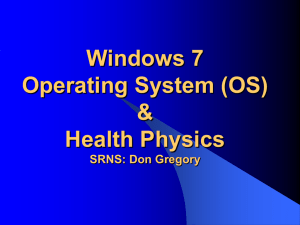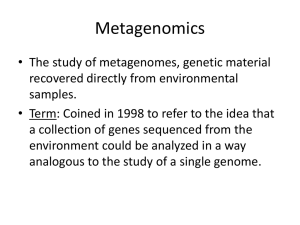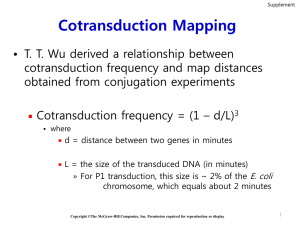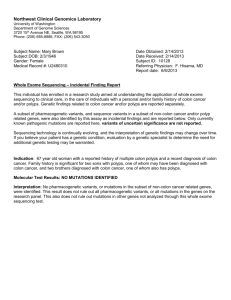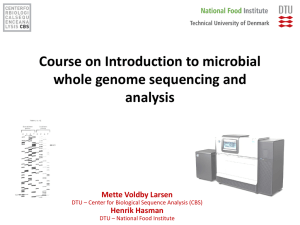NEXT GENERATION SEQUENCING OF >30 GENES ASSOCIATED
advertisement
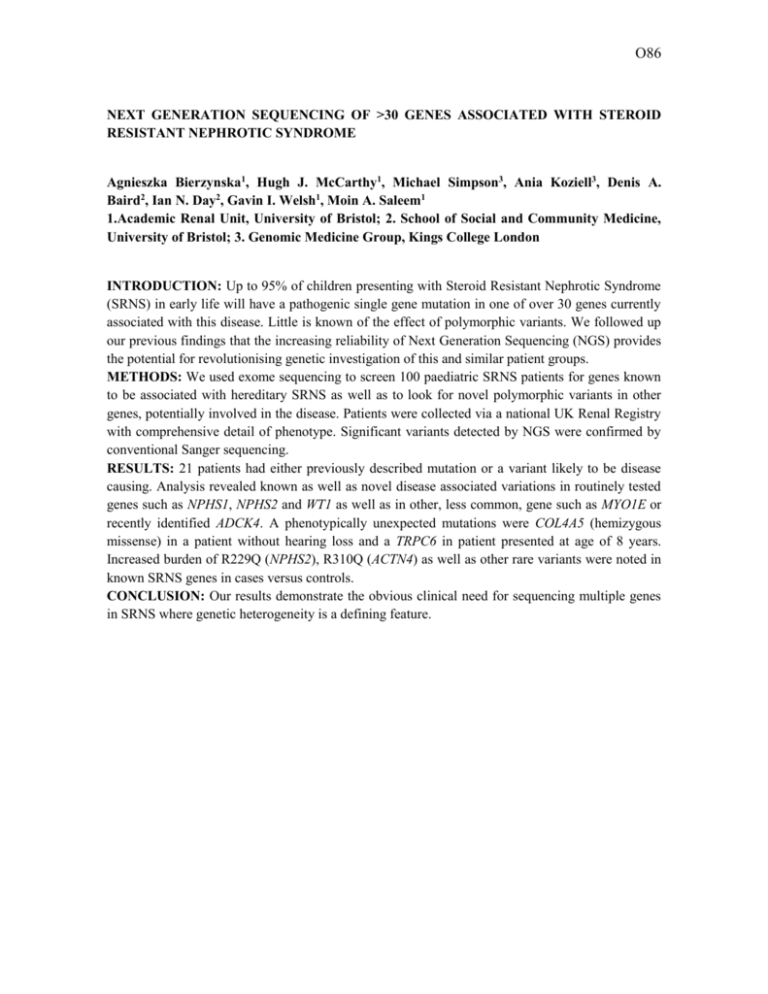
O86 NEXT GENERATION SEQUENCING OF >30 GENES ASSOCIATED WITH STEROID RESISTANT NEPHROTIC SYNDROME Agnieszka Bierzynska1, Hugh J. McCarthy1, Michael Simpson3, Ania Koziell3, Denis A. Baird2, Ian N. Day2, Gavin I. Welsh1, Moin A. Saleem1 1.Academic Renal Unit, University of Bristol; 2. School of Social and Community Medicine, University of Bristol; 3. Genomic Medicine Group, Kings College London INTRODUCTION: Up to 95% of children presenting with Steroid Resistant Nephrotic Syndrome (SRNS) in early life will have a pathogenic single gene mutation in one of over 30 genes currently associated with this disease. Little is known of the effect of polymorphic variants. We followed up our previous findings that the increasing reliability of Next Generation Sequencing (NGS) provides the potential for revolutionising genetic investigation of this and similar patient groups. METHODS: We used exome sequencing to screen 100 paediatric SRNS patients for genes known to be associated with hereditary SRNS as well as to look for novel polymorphic variants in other genes, potentially involved in the disease. Patients were collected via a national UK Renal Registry with comprehensive detail of phenotype. Significant variants detected by NGS were confirmed by conventional Sanger sequencing. RESULTS: 21 patients had either previously described mutation or a variant likely to be disease causing. Analysis revealed known as well as novel disease associated variations in routinely tested genes such as NPHS1, NPHS2 and WT1 as well as in other, less common, gene such as MYO1E or recently identified ADCK4. A phenotypically unexpected mutations were COL4A5 (hemizygous missense) in a patient without hearing loss and a TRPC6 in patient presented at age of 8 years. Increased burden of R229Q (NPHS2), R310Q (ACTN4) as well as other rare variants were noted in known SRNS genes in cases versus controls. CONCLUSION: Our results demonstrate the obvious clinical need for sequencing multiple genes in SRNS where genetic heterogeneity is a defining feature.
